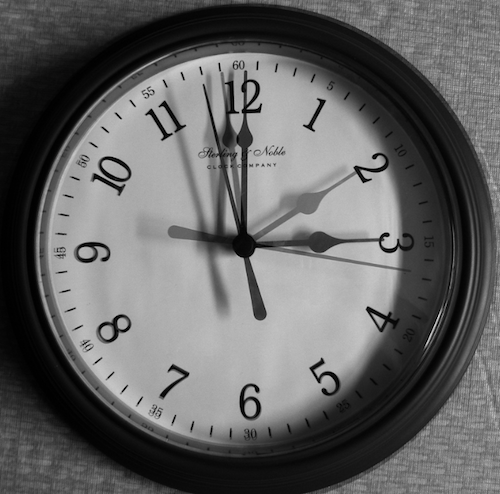Human circadian clock seasonal adjustment.
Fall back, spring forward. We do it every year. But why? I’ve always thought it seemed a little outdated. Even when I was a kid, no one could give me a satisfying explanation of why we change our clocks twice a year. My mother was always super excited about it, but she was hopelessly old fashioned.
Daylight Saving Time is simply turning our clocks back one hour in the Fall and ahead by an hour in the Spring.
Does Daylight Saving Time make sense in the 21st Century?
Benjamin Franklin, conceived the idea of turning our clocks back in the Spring around 100 years ago as a way to conserve energy and make better use of our time. Good on him. He was ahead of his time.
Environmentally, it makes sense to save energy by reducing the artificial light used in the evening hours.
Negative aspects of Daylight Saving Time include compromised health effects like changes in mood, declining sleep quality, drowsiness, headaches and additional stress. A recent study links an increase in heart attack incident during the first three weeks during Spring Daylight Saving Time transition.
How can we counteract that “Monday Morning” feeling of daylight saving time?
1. Taking a brisk morning walk or run can help our bodies adjust more quickly to the time change. It stimulates the serotonin release in our brain. Do morning yoga in a naturally bright room with big windows.
2. Increase our exposure to bright natural light. Eat breakfast outside at the picnic table. Just bundle up a little bit, if we live somewhere cold. I’ve heard of people visiting the tanning salon to get a quick high dose of bright light and vitamin D. Remove the sunglasses for a week and really let that sunshine shine in our eyes.
3. Take a low dose melatonin supplement. Melatonin regulates sleep cycles and affects wakefulness. Eat foods that will naturally increase your melatonin. These foods include pineapples, bananas, oranges, steel cut oats, sweet corn, rice, tomatoes and barley.
4. Eat dinner an hour earlier. Avoiding alcohol and caffeine can help, too. Also go to bed earlier.
5. Be purposeful about relaxing the hour before bedtime. Have a hot Epsom salt bath, drink chamomile tea, meditate or read a book. Getting adequate rest will help our bodies adjust to the time change.
The adjustment to Daylight Saving Time can be less of a drag if we just take a little extra care of ourselves. Once the adjustment period is over, we get a whole extra hour of daylight to enjoy being outside after school or work. Yay! Here comes Spring.
“Time is Money.” ~ Benjamin Franklin
Love elephant and want to go steady?
Sign up for our (curated) daily and weekly newsletters!
Editor: Bryonie Wise
Photo: Denise Mattox



Read 5 comments and reply